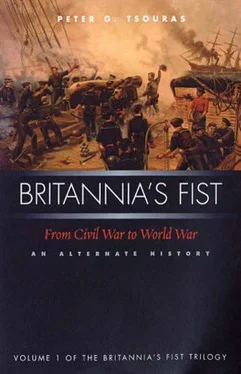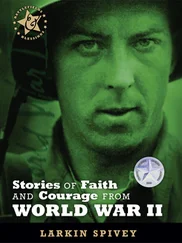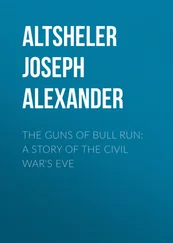Peter Tsouras - Britannia's Fist - From Civil War to World War
Здесь есть возможность читать онлайн «Peter Tsouras - Britannia's Fist - From Civil War to World War» весь текст электронной книги совершенно бесплатно (целиком полную версию без сокращений). В некоторых случаях можно слушать аудио, скачать через торрент в формате fb2 и присутствует краткое содержание. Год выпуска: 2008, ISBN: 2008, Издательство: Potomac Books Inc., Жанр: Альтернативная история, на английском языке. Описание произведения, (предисловие) а так же отзывы посетителей доступны на портале библиотеки ЛибКат.
- Название:Britannia's Fist: From Civil War to World War
- Автор:
- Издательство:Potomac Books Inc.
- Жанр:
- Год:2008
- ISBN:9781574888232
- Рейтинг книги:3 / 5. Голосов: 1
-
Избранное:Добавить в избранное
- Отзывы:
-
Ваша оценка:
- 60
- 1
- 2
- 3
- 4
- 5
Britannia's Fist: From Civil War to World War: краткое содержание, описание и аннотация
Предлагаем к чтению аннотацию, описание, краткое содержание или предисловие (зависит от того, что написал сам автор книги «Britannia's Fist: From Civil War to World War»). Если вы не нашли необходимую информацию о книге — напишите в комментариях, мы постараемся отыскать её.
Britannia's Fist: From Civil War to World War — читать онлайн бесплатно полную книгу (весь текст) целиком
Ниже представлен текст книги, разбитый по страницам. Система сохранения места последней прочитанной страницы, позволяет с удобством читать онлайн бесплатно книгу «Britannia's Fist: From Civil War to World War», без необходимости каждый раз заново искать на чём Вы остановились. Поставьте закладку, и сможете в любой момент перейти на страницу, на которой закончили чтение.
Интервал:
Закладка:
When Joseph Hooker had blown into the command of the Army like a cleansing wind, Sharpe had been his inspired choice for something new. Hooker had been that transformational man who had leapt out of an old paradigm into the new. With a taste for the value of military intelligence, he had experimented with various collection means as a division and corps commander. When he became Army commander, he did something unique. Heretofore, commanding generals had been their own intelligence officers, a role that had worked for great commanders like Washington when armies were small. Hooker saw that the scale and complexity of modern war had made it impossible for any single man to both command an army and control its intelligence operation as well.
For the latter task he chose Sharpe. At Fredericksburg, he had seen Sharpe decisively sort out a muddle on the field. A regiment of French immigrants had milled about in confusion, unable to understand the order of their non-French-speaking colonel. Sharpe rode over from his own 120th New York (NY) Volunteers, gave the orders in parade ground-loud perfect French, and the regiment moved smartly into line. Hooker had called Sharpe in for an interview and showed him a French book on how to create a secret service. He asked if he could translate it and how fast. Sharpe replied, “As fast as I can read it.” When he did, the job was his.
Sharpe had taken this new ball and run with it. He created a fully functioning intelligence operation-the Bureau of Military Information (BMI)-practically from scratch. He assembled a contingent of hardy and clever scouts, developed a spy network, and established interrogation, document exploitation, and order-of-battle operations. Hooker had given him carte blanche, which he used to coordinate the other intelligence collection means of the cavalry, Balloon Corps, and Signal Corps. He also established contacts throughout the Eastern Theater of operations that often took him to Washington and Baltimore. His efforts had presented Robert E. Lee “the Incomparable” to Hooker on a silver platter in April, the most magnificent gift of intelligence in the war. However, at Chancellorsville early the next month Joe Hooker had lost faith in Joe Hooker, and all of Sharpe’s efforts went for naught.
Hooker’s successor, Maj. Gen. George G. Meade, had listened to Sharpe at Gettysburg and not flinched. It was Sharpe’s report on the night of July 2 that had convinced Meade to stay and fight it out on the third day of the battle. It was also Sharpe’s special operation raid the morning of the same day that had snatched dispatches to Lee from Jefferson Davis that laid bare the Confederacy’s defensive strategy and force deployment in the East. Stanton was so elated that he poured gold into the hands of Sharpe’s chief of scouts, the sandy-haired Sgt. Milton Cline, who had personally seized the dispatches. Yes, Stanton knew Sharpe.
Now Sharpe was pondering the reason for his cryptic summons. He considered the possible sources in the reports he had forwarded to Washington. Almost everything had been a running account of Lee’s movements, strength, logistics, and possible intentions. There was nothing really special or earthshaking there, just patient building of a picture of the enemy and the daily effort to keep it current. Although Stanton absorbed everything like a sponge, his interest had shown no special emphasis in the month since Gettysburg except for the case of a contraband named George.
George, a Confederate officer’s servant, had come through the lines only last week. He bore a strange tale, one that normally was outside Sharpe’s area of responsibility. Cline had come to see him, “Colonel, you should talk to this boy, yourself.” And he did.
The boy was obviously intelligent. His astute observations confirmed much of what Sharpe’s office already knew, a vital cross-checking feature of intelligence. It was the normal order-of-battle information, but George had more to say when Cline nudged him and said, “George, tell him about the white folks up north.” He then told a tale that made even Sharpe’s eyes widen.
As Sharpe mused in his carriage, Fox’s and Lamson’s carriage was also moving down Pennsylvania Avenue toward the White House. Fox chewed on his cigar briefly between sentences. He was too active a man to endure long silences. “These Confederate commerce raiders are gutting our merchant navy, ruining our international commerce, and driving people whose livelihoods have been destroyed into the arms of the people who want this war stopped.”
Lamson watched the man’s body language radiate hostility. Fox went on, “They’re as serious a threat as the blockade-runners that keep the rebels alive with the bounty of Her Majesty’s foundries and arsenals.” He looked at the ruin of his cigar with disgust and tossed it out the window. “And, I’ll tell you straight out, Lamson, that we are on the losing end of the fight at both ends. We are just not catching enough blockade-runners, and even when we catch one, Semmes and his infernal Alabama seize two of our ships. A losing game, a losing game.”
Lamson had not been discouraged by Fox’s venting. Rather his interest had been piqued. It was not every day that a junior naval officer received an invitation to the White House. Within Fox’s lament, Lamson could smell opportunity for something grand. It was with a delicious sense of anticipation that he followed Fox into the White House.
Charles Dana, the assistant secretary of war and Fox’s counterpart, was already in the anteroom chatting with an Army colonel. He saw Fox and said, “Gus, let me introduce Col. George Sharpe. Colonel, this is Gus Fox whom I’m sure you’ve heard of.”
Fox sized up Sharpe and was not impressed as they shook hands. “Dana here speaks highly of you, Colonel, don’t you, Charlie?” Sharpe’s handshake was firm, not what Fox expected from such a nondescript-looking man. Then Fox was as taken aback as the lieutenant at the railroad station had been by the transformation of Sharpe’s face. There was power there. He remembered to introduce Lamson, who found some comfort in the presence of another officer in this otherwise intimidating setting of the Executive Mansion, even if it was an Army officer three grades his senior. Fox and Dana drifted off to a corner to talk, leaving the colonel and the lieutenant to their thoughts.
Upstairs the cabinet was meeting with the President. The room in which they regularly met was austere, the only decorations being a large series of maps on one wall and on the other an old engraving of Andrew Jackson and a small framed photographic portrait of John Bright, a man Lincoln admired immensely. Bright was a member of the British Parliament whose impassioned support of the United States in its struggle had earned him the derisive title of “Member from the United States.” At times he seemed to be the only member of the British establishment who took up the cause of the Union. His powerful antislavery message resonated more with working- and middle-class Britons than with the ruling and business classes whose palpable disdain for the Union was returned with a bitter resentment by the Americans. Establishment Britain anticipated a Southern victory with undisguised glee. That was not lost on the men sitting at the table. A recent centerpiece for the table, a jagged piece of shell, had been presented by Meade after Gettysburg. It had been fired by a Whitworth breech-loading rifled cannon presented as a gift to the Confederacy by the London Chamber of Commerce. 1
Lincoln’s Secretary of State, William H. Seward, held the floor. He was the man who informed opinion acknowledged should have been president and was probably the most distinguished man in the country before the war. He had been governor of New York and a senator thereafter. The 1860 nomination of the new Republican Party seemed his for the taking, until the Log Splitter from Illinois carried off the prize from under Seward’s enormous Roman nose. That was not the first time he had underestimated Lincoln. When the new president sought the best men for his cabinet, he turned to Seward to be his senior cabinet officer. Seward thought at first that that position gave him license to determine policy for the unsophisticated lawyer from the West. When he got over his shock that Lincoln would be his own man and was quite capable of it, their relationship settled into one of mutual respect and even friendship. Seward was a man without political rancor and served to the best of his considerable ability. For that reason, he did not object when Lincoln made Thomas Haines Dudley the U.S. consul in Liverpool. Dudley was the Connecticut politician whose support had swung the Republican nomination away from Seward to Lincoln. The appointment was more than a political reward; Lincoln had placed an able man in a sensitive post, which Seward did not fail to recognize. 2
Читать дальшеИнтервал:
Закладка:
Похожие книги на «Britannia's Fist: From Civil War to World War»
Представляем Вашему вниманию похожие книги на «Britannia's Fist: From Civil War to World War» списком для выбора. Мы отобрали схожую по названию и смыслу литературу в надежде предоставить читателям больше вариантов отыскать новые, интересные, ещё непрочитанные произведения.
Обсуждение, отзывы о книге «Britannia's Fist: From Civil War to World War» и просто собственные мнения читателей. Оставьте ваши комментарии, напишите, что Вы думаете о произведении, его смысле или главных героях. Укажите что конкретно понравилось, а что нет, и почему Вы так считаете.












